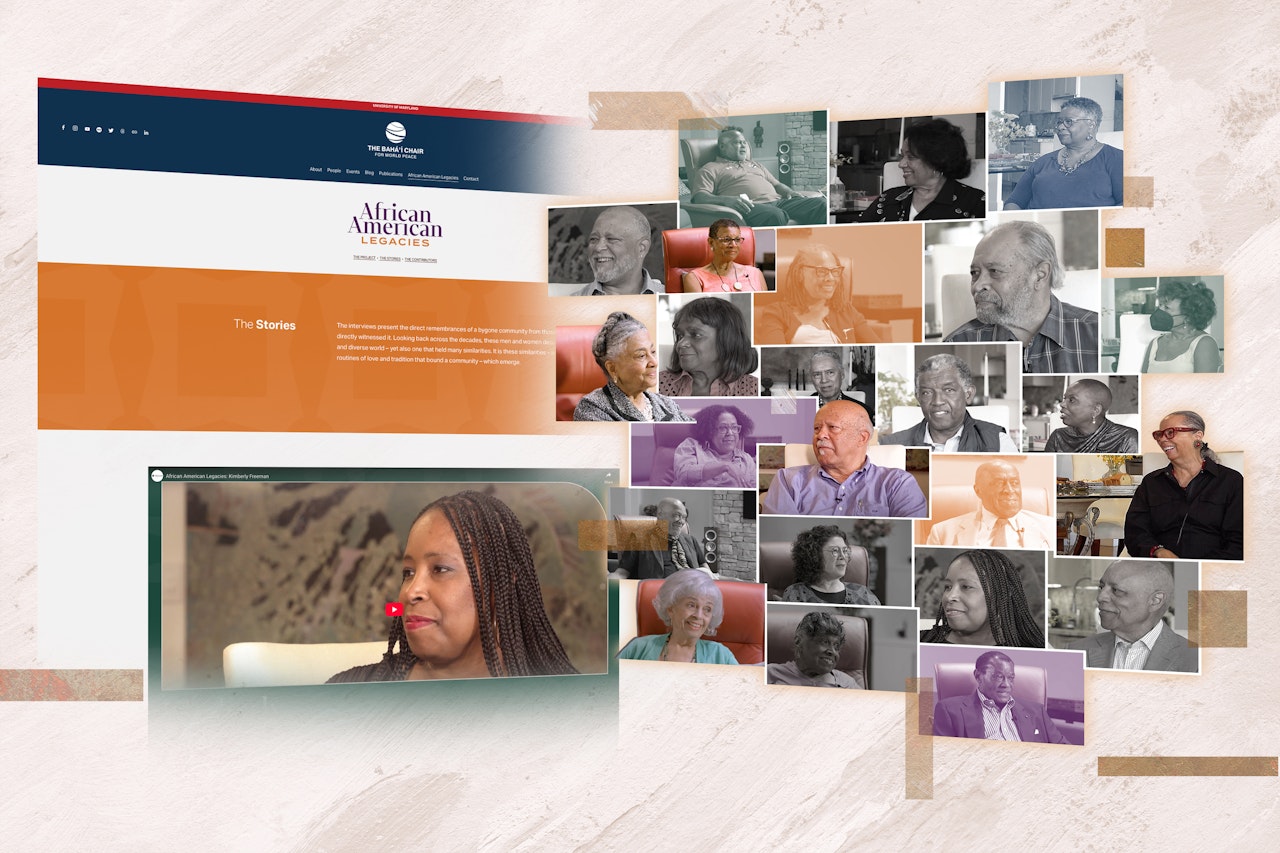United States
Bahá’í Chair illuminates resilience during Jim Crow era
The Bahá’í Chair’s oral history project, grounded in the principle of the oneness of humankind, shares accounts of resilience amid inequities that continue to shape lives

The Bahá’í Chair’s oral history project, grounded in the principle of the oneness of humankind, shares accounts of resilience amid inequities that continue to shape lives

COLLEGE PARK, Maryland, United States — Accountability of wrongs and recognition of progress are needed for healing the rifts in society, said Hoda Mahmoudi, Professor and holder of the Bahá’í Chair for World Peace at the University of Maryland.
In that spirit, an oral history initiative by the Bahá’í Chair turned to those who grew up in the shadow of segregation during the Jim Crow era in the United States and asked them to describe, in their own words, how families and neighborhoods shaped lives of dignity, perseverance, and mutual care.
“The Bahá’í teachings state that we should celebrate human diversity,” said Dr. Mahmoudi. She explained that celebrating this diversity implies learning the history and lived experience of a people, which helps strip away stereotypes and awakens a truer sense of oneness.
The project, titled African American Legacies: Remembering Resilient Communities, brings together recorded long‑form conversations over two years with 24 people from different regions and walks of life in the United States.
As part of the Chair’s broader research program, the initiative engages with structural racism and the root causes of prejudice—one of five themes the Chair identifies as essential to removing obstacles to peace. These themes also include human nature, the empowerment of women, global governance and leadership, and environmental degradation.
Interviewees representing a wide range of regions, generations, and occupations—from rural towns to urban centers—recall the rhythms of family and community life and the hope in a brighter future that sustained them in an era marked by exclusion.
Video interviews (viewable here) open a window to historical experiences from a different era, reveal patterns of resilience that remain relevant as inequities persist today. These accounts show communities that, facing imposed barriers, supported individuals in their education, earning a livelihood, worship, and mutual assistance.
“The more we turn outward and work with others, the better we grasp the meaning of our common humanity.”
Hoda Mahmoudi, Holder of the Baháʼí Chair for World Peace at the University of Maryland, United States
“The interviews make visible a population too often rendered invisible and offer an educational resource for classrooms and a mirror for society,” said Dr. Mahmoudi.
“Progress has been real,” she continued, “yet the work of fostering race unity remains unfinished. Listening carefully to these memories can strengthen the resolve and empathy needed for constructive change.”
The strength of the project lies in how it reframes the story of an era. Interviewees describe communities in which every role mattered and social standing did not determine worth. The project’s findings illuminate how families supported one another and how a spirit of service created environments where everyone—from the youngest to the oldest—felt valued and included.
In these communities, mutual support was not merely a survival strategy; it was an expression of a worldview that saw each person as having valuable contributions to make to the collective good. The accounts captured in the project reveal the capacities that grew under pressure: steadfastness, solidarity, imagination.
For the Bahá’í Chair, documenting these legacies is not only about the past. Rather, it is an invitation to consider what it will take to foster communities where nobility is recognized in every person and where diversity is a source of strength.
“The more we turn outward and work with others,” Dr. Mahmoudi reflected, “the better we grasp the meaning of our common humanity.”